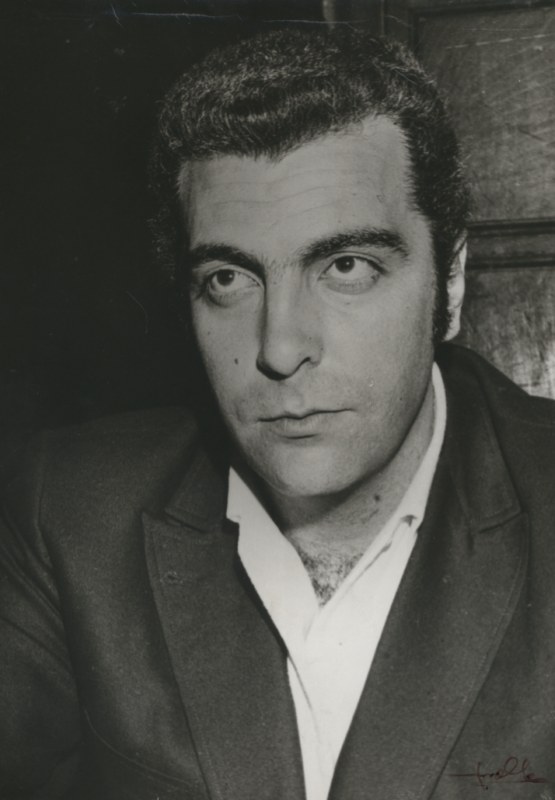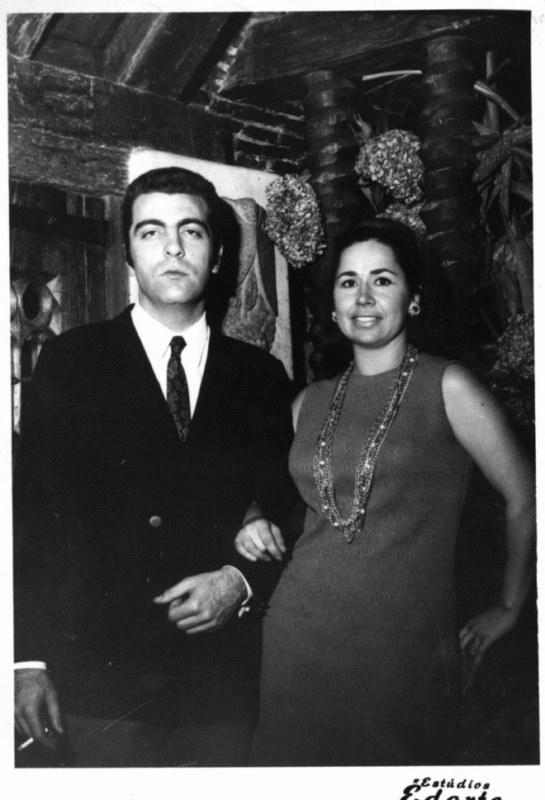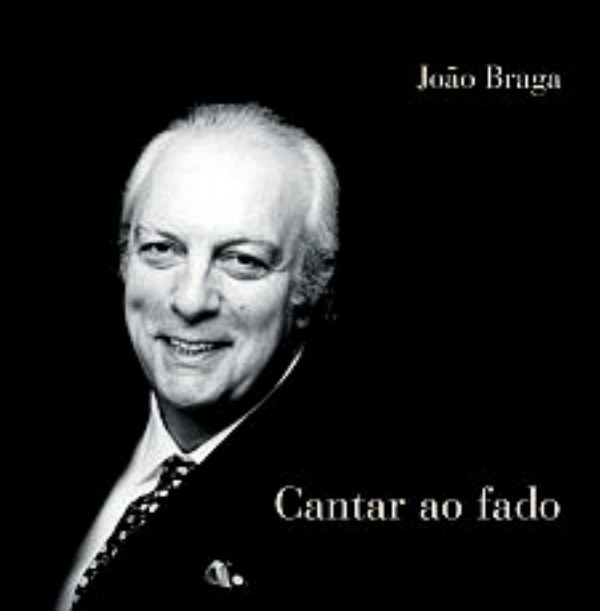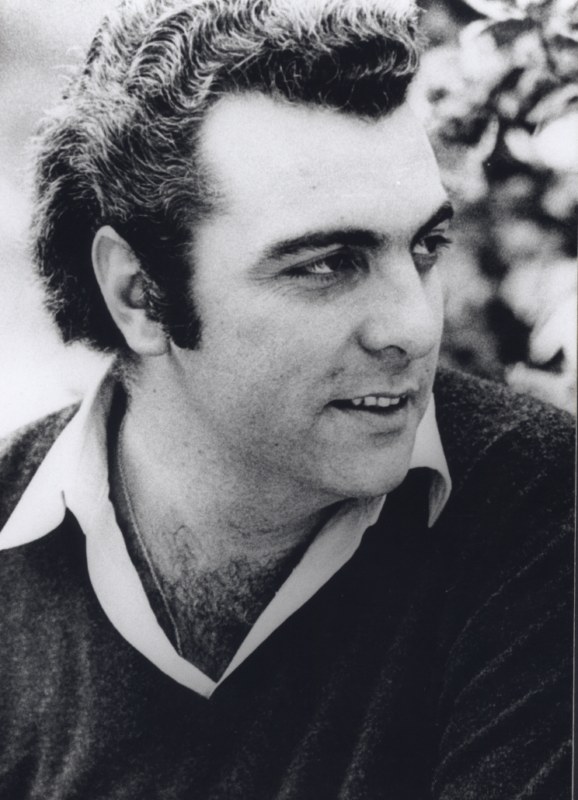Know more:
João Braga
(N. 15 April, 1945)Son of Óscar José da Costa Braga and Maria de Lurdes de Oliveira e Costa, João Braga was born in Lisbon at the old Rua da Creche (currently Rua José Dias Coelho), in Alcântara, on the 15 April 1945, near the end of World War II.
One of three brothers, João Braga initially studied at Colégio São João de Brito where he sang for the first time in public at 9 (1954), on the opening ceremony of the new crypt of the school’s church.
As a teenager he surrendered to rock’n’roll, jazz and bossa-nova, which he heard for the first time at the house of one of his friend’s father. From then on he used all his savings to buy all possible recordings of this music genre, which he increasingly liked:"...in my view, they were creating the most beautiful music of the twentieth century, i.e. bossa-nova; just hearing that description (...) I broke my piggy and gave him my savings to turn them all into bossa-nova records."
He dropped out the Law School in 1963, as he himself confesses, to start “singing the fado” at "Galito" (Estoril, 18 March 1963). Until then he had sung "many other musics" – i.e. Sinatra, Roy Orbison, Nat "King" Cole, Aznavour, Everly Brothers (with Francisco Stoffel), Elvis, Beatles, Tom Jobim, João Gilberto, Vinícius de Moraes, Ray Charles and many others.
From 1963 to 1967 (when he became a professional) João Braga developed an intense activity as amateur singer, acquiring a rich experience and knowledge in fado houses like "Tipóia" (where he met Manuel de Almeida and Maria da Fé) and "Adega Machado" (both in Lisbon).
In March 1964 he participated in his first important fado event, at Tertúlia da Festa Brava. He met Alfredo Marceneiro, Lucília do Carmo, Teresa Tarouca, and poets Manuel de Andrade and João Fezas-Vital.
Also in June 1964 he opened "Estribo Club" (Birre-Cascais) as a fado house, in partnership with Francisco Stoffell and in November they both moved to the "Cartola" bar (Cascais). As a result of this he gave his first interview to newspaper Diário Popular, to another young man who was then starting as journalist, Diniz de Abreu.
In August 1965 he made his first money (one thousand Portuguese escudos) at the Feast of Nossa Senhora do Castelo (Coruche). He met Carlos Ramos, João Ferreira-Rosa and Carlos do Carmo. He was invited to sing, together with Teresa Tarouca and António de Mello-Corrêa, at the 50th anniversary of Mestre João Branco Núncio as bullfighter.
In April 1966 João Ferreira-Rosa opened "Taverna do Embuçado" and João Braga began to perform there on daily basis, thus becoming more popular to the general public. In 1966 he met one of his key references, Amália Rodrigues. He said the following words about her: "Amália was a rare and impressing human being..."
In December 1966 he recorded his first record, 4-track EP "É Tão Bom Cantar o Fado", which was marketed in January 1967.
In January 1967 he began his military service and became a professional fado singer. João Braga made his television debut (RTP), singing at a programme presented by Júlio Isidro. 1967 was clearly an important year for the singer.
In 1971 one of the highest moments in his career was to be invited as co-organiser of the First Cascais Jazz Festival, in November, starring Miles Davis, Ornette Coleman, Charlie Haden and Keith Jarrett, among others.
On the 4 October 1971 he married Ana and they had two sons, Filipe and Miguel.
Due to the turmoil in Portugal he went to exile in Madrid in 1974 and stayed there until mid-1976. On his return to Portugal, in the summer of 1976 he opened the fado house "O Montinho" in Montechoro.
João Braga became one of the most influential fado singers, always eager to innovate and make his work progress. Proving his significant versatility in 1978 he opened "O Páteo das Cantigas" (where he performed until 1982) and launched a new album for the Orfeu label, called "Miserere". He participated in a series of programmes for RTP, called "Fado Vadio". He toured Portugal with shows and was one of the persons invited to participate in the tribute to Pedro Homem de Mello, at Ateneu do Porto (1979).
Now a charismatic fado figure, the 1980’s brought a new contract with Valentim de Carvalho and he recorded LP "Branco & Tinto". He was invited to sing at Casino Estoril in a Gala in Honour of Princess Grace of Monaco (1980) and at Palácio de Queluz (Sala dos Embaixadores) for the President of Brazil, João Baptista Figueiredo (1981).
João Braga made his debut as composer of melodies in his LP "Do João Braga para Amália" and in 1985 he recorded his last record for Sassetti, "Portugal" with 16 poems from books "Mensagem" by Fernando Pessoa, "Los Borges" by Jorge Luis Borges (performed in Castilian) and "Portuguez d´Hoje" by Afonso Lopes-Vieira.
In 1987 the fado singer revealed a new facet. João Braga devoted himself to the campaign "Timor87 - Vamos Ajudar!", aimed at raising funds for the Timorese refugees living at Vale do Jamor.
He continued his career on television (RTP2), recording documentary "Desgarradas" with Artur Albarran and other guests. He recorded for TV Globo, singing poems by Fernando Pessoa. He began a close collaboration and friendship with Manuel Alegre, who for the first time wrote unpublished poems for the singer.
In 1990 his show at São Luiz, in Lisbon, was interrupted for a short ceremony, during which the Portuguese Government awarded him the Medal of Cultural Merit (22 May). He matched his show business activity with that of editor of magazine "Eles & Elas" and weekly chronicler at TSF. In this period João Braga excelled as promoter of renewal in the fado scene, inviting young fado talents to perform with him.
On the 29 May 1992 he sang at Teatro de S. Carlos, on occasion of the 25th Anniversary Gala of his career. He participated in the «100 Anos de Fado» show at the Seville Expo´92. In December the alumni of Colégio de S João de Brito paid him tribute and he received the «José Carlos Belchior» medal on that occasion.
In 1995 he presented his show "Em Nome do Fado" at Teatro São Luiz, introducing to the public a new fado voice, Mafalda Arnauth. At the Grande Noite do Fado, he received the "Prémio Neves de Sousa" award, a tribute by Casa da Imprensa. In 1996, during a show at Aula Magna da Reitoria da Faculdade de Direito de Lisboa, he was decorated by the President of the Portuguese Red Cross with the Red Cross Merit Medal.
He signed a contract with BMG (1997) and presented a show at Teatro São Luiz to celebrate the 30th anniversary of his career. The city of Lisbon paid him tribute and offered him an engraving of sixteenth-century Lisbon.
On occasion of Expo´98, João Braga opened the "Palco do Fado" and was one of the guest artists invited to perform at the Closing Ceremony of Expo´98. He premiered his show "Terra do Fado" (Land of Fado) at the New Jersey Performing Arts Center, which sold out.
In April 1999 João Braga prepared to launch his new CD "100 Anos de Fado", (recorded live), edited by the Farol label and presented at the Main Hall of the Lisbon Town Council. He also sang a the "Expresso" Gala, performing a fado-tribute by Manuel Alegre in honour of Amália Rodrigues. He was selected to hand the «25 Anos, 25 Nomes» Trophy to the greatest singer ever.
João Braga participated as singer, producer and host in the "Amália Para Sempre" show, broadcasted by TVI. In recognition of one of the most distinguished fado careers, he received in October the "Prémio Carreira" awarded by Casa da Imprensa.
In November he performed at Parque das Nações in the show "100 Dias de Fado", with Carlos Zel, Maria Ana Bobone, Miguel Sanches, António Pinto Basto and Ana Sofia Varela.
In 2000 João Braga performed at the 167th Anniversary of Café Martinho da Arcada, singing themes by Fernando Pessoa. In February he paid a new tribute to Amália Rodrigues at "Porto Amália", a show in which he was singer, producer and host.
On occasion of Pope John Paul II’s visit, the fado singer organised, as singer, producer and host, the show "Quando o Fado é Oração".
In June, at the Main Hall of the Lisbon Town Council, he presented his new CD "Cantar ao Fado”, the favorite record of João Braga.
In August he prepared the 2nd series of «100 Anos de Fado», a double CD recorded live at Parque das Nações. João Braga was once again invited as producer and host of the show performed at Coliseu dos Recreios, «Uma vela por Amália», in which he introduced a new fado voice, Katia Guerreiro.
On the 18 February 2004 João Braga returned to the stage of Teatro de São Luiz, for a single show starting at 8 pm. He invited singers Maria Ana Bobone and Ana Sofia Varela and the usual musicians José Luís Nobre Costa, Carlos Gonçalves, Jaime Santos Jr. and Joel Pina.
As screenplay writer and music producer, he presented with José Carlos Malato the show "Fados de Sempre", in which all themes were sung in dueto.
Year 2005 opened with his participation in a great show organised by RTP1, at Coliseu, for the benefit of the victims of the December tsunami in Asia, singing «Bem Sei».
On occasion of the 2004 Foreign Press Association Awards ceremony he performed one of the major hits of Carlos Paredes, "Verdes Anos".
In 2006 RTP broadcasted this programme «Fados de Sempre2», celebrating the come-back of two great voices to Portuguese television – i.e. Fernanda Maria and himself (after a surgery occurred two months before).
In February President of the Republic Jorge Sampaio, in a ceremony at Palácio de Belém, granted him the "Comenda da Ordem do Infante Dom Henrique", a fair tribute to one of the most distinguished Portuguese fado singers.
In March he celebrated the 40th anniversary of his career at Aula Magna, in a show designed, directed, produced and hosted by him. "De Alma e Coração" also had the participation of Mafalda Arnauth, Miguel Ângelo, Rão Kyão and Miguel Guedes, among others.
João Braga is one of the most iconic fado voices of today, singing and paying tribute to the best Portuguese poets. "My first passion, my true passion, is really poetry ".
Braga releases, in 2017, the album "Outrora Agora" with some of his most famous classics and new songs and celebrates, in that same year, 50 years of career with a special concert at the Teatro Municipal São Luiz where he gathered on stage several of his friends.
Source:
Baptista-Bastos (1999), "Fado Falado", Col. "Um Século de Fado", Lisboa, Ediclube;
"De Alma e Coração", catalogue of a show designed, produced and performed by João Braga at Aula Magna, 16 March 2006
Museu do Fado – Interviewed on the 8 August 2006.

João Braga, s/d.

João Braga, s/d.

João Braga, capa do cd Cantar ao Fado, Farol, 2000

João Braga, s/d.
-
As Sílabas do Fado João Braga (Manuel Alegre / João Braga)